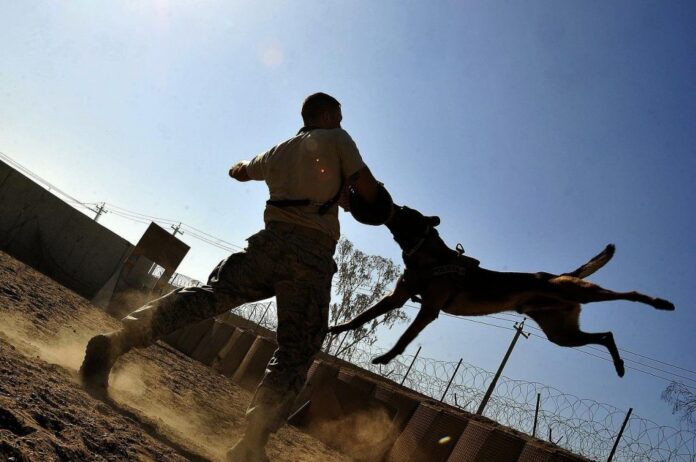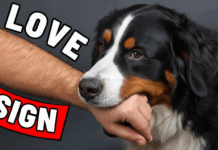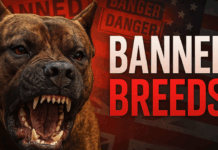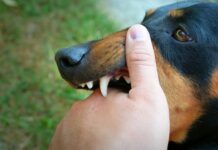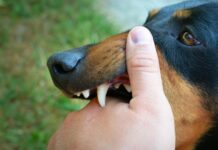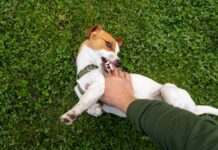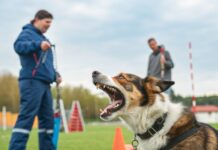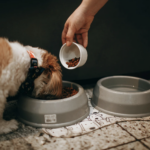Last Updated on February 4, 2025 by Dogs Vets
Dogs are often seen as loving pets, but not all interactions with them are good. Getting bitten by a dog can be a scary event, causing both physical and emotional pain. While people usually think about the physical injuries, the emotional effects, especially anxiety, can be just as harmful, if not more so.
For many people who get bitten, the fear and stress that follow can last a long time. Dog bite victims suffer injuries that can range from minor wounds to severe trauma, but the mental toll can be even worse. Everyday things, like going outside or seeing a dog, can make someone panic. It’s important to know how a dog bite can cause anxiety and to learn ways to deal with it to help in the healing process.
How a Dog Bite Can Cause Anxiety
The Shock of the Attack
A dog bite happens suddenly and can leave someone feeling shocked. The worry of getting hurt again can stick in their mind, creating lasting anxiety. Victims might keep thinking about the attack, feeling the same fear each time.
Fear of Dogs
Many people who have been bitten develop a strong fear of dogs, known as cynophobia. Even when they see a friendly dog, they can feel extreme panic. This fear can make it hard to enjoy daily life, like going to parks, walking in their neighborhoods, or even visiting friends who have pets.
Post-Traumatic Stress Disorder (PTSD)
In some cases, a dog bite can lead to PTSD. Signs of PTSD can include:
- Flashbacks of the attack
- Nightmares about the incident
- Difficulty sleeping
- Hypervigilance (being overly alert and anxious)
- Avoiding places where dogs might be present
PTSD can affect daily life, making it tough to work, maintain relationships, and feel good overall.
Signs of Anxiety After a Dog Bite
Anxiety can show itself in different ways. Common signs include:
- Constant worry or fear: Feeling unsafe even when no dogs are around.
- Panic attacks: Sudden feelings of intense fear, trouble breathing, and fast heartbeat.
- Avoidance behaviors: Not wanting to go outside or stay away from places with dogs.
- Mood changes: Feeling cranky, sad, or hopeless.
- Physical symptoms: Headaches, stomachaches, or muscle tightness due to stress.
Noticing these signs is the first step to dealing with anxiety and finding help.
Coping with Anxiety After a Dog Bite
Getting Professional Help
A therapist or counselor can help someone deal with their trauma and find ways to cope. Cognitive-behavioral therapy (CBT) is often used for anxiety and PTSD. It helps people change negative thoughts and face their fears little by little in a safe way.
Gradual Exposure to Dogs
Avoiding dogs completely can make fear worse. Instead, a gradual exposure approach can help. This could start with looking at pictures of dogs, then watching them from a distance, and eventually getting close to a calm, well-trained dog. Taking small steps can help rebuild confidence.
Practicing Relaxation Techniques
Techniques like deep breathing, meditation, and relaxing muscles can help reduce anxiety. Doing these regularly can lower stress and make fear easier to handle.
Talking About What Happened
Keeping emotions inside can make anxiety worse. Talking to caring friends, family, or a support group can be comforting. Knowing that others understand can bring relief.
Focusing on Safety
Some people feel better when they learn about dog behavior and safety tips. Understanding how to read a dog’s body language can help prevent future problems and give victims a sense of control instead of fear.
Conclusion
Anxiety after a dog bite is real and can greatly affect someone’s life. However, with time, support, and the right ways to cope, it is possible to regain confidence and move on. Seeking help, gradually facing fears, and taking care of oneself are key steps to healing.
If you or someone you know is dealing with anxiety after a dog bite, remember—you are not alone. Healing may take time, but with patience and effort, a brighter, fear-free future is possible.
